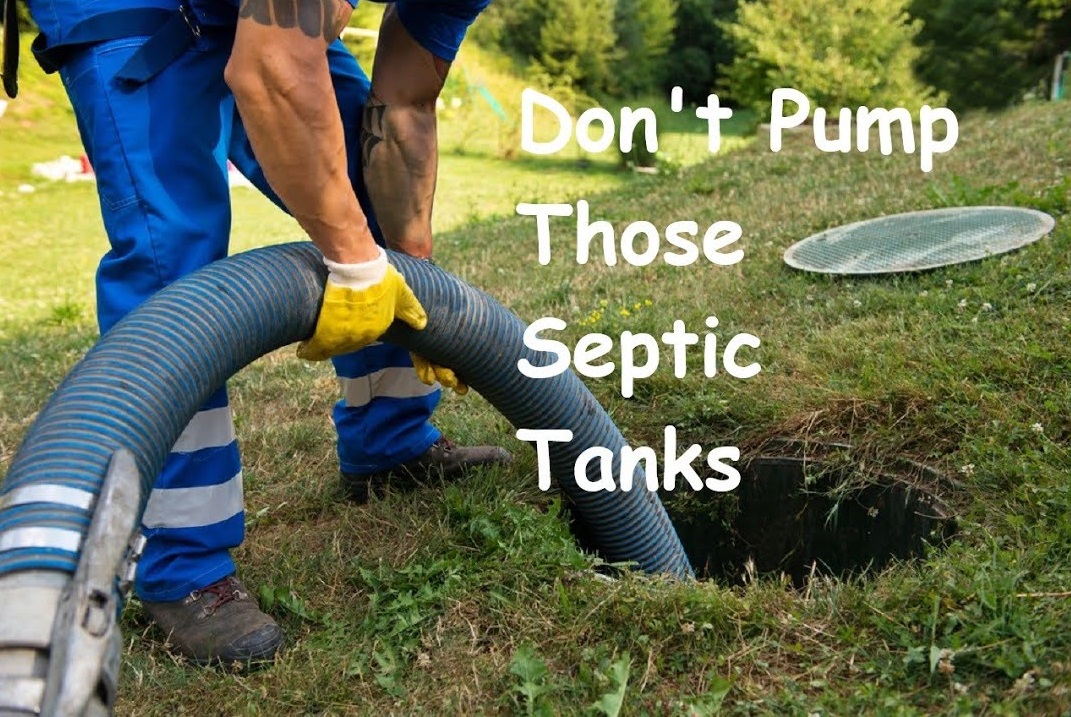Many industry professionals advise against regularly pumping a septic system, and they offer a detailed explanation of why.
How a Septic System Works
A septic system is comprised of four main components.
First, the sewage system from the house is all gathered into one main source pipe that feeds into the septic system.
Second, the septic tank receives the sewage and processes it internally.
Third, the treated materials from the septic tank are distributed through a series of underground release lines placed laterally across the property.
Then fourth, the processed liquids are released into the soil where the last breakdown occurs and the final product becomes healthy fertilizer for the soil.
How Waste Breaks Down
A properly functioning septic is a closed system. That means that everything needed to process the waste is kept underground, out of sight and out of harm’s way.
The solids and fluids from the home are both captured by the septic tank, where microbiological bacteria interact with the solids and slowly break them down.
Eventually, the solids are reduced to a safe, manageable state and, together with the fluids, are passed into the distribution system for disposal.
Once dispensed into the soil, the natural processes of the earth break the remaining products down into healthy, usable fertilizer. It is like a fine “echo system” and everything remains underground and safe from damage or intervention

What Causes Problems in Septic Systems
A properly engineered septic system is designed to handle human waste, not other foreign substances.
Unfortunately, many homeowners allow their system to be used to dispose of improper materials such as cleansing wipes, diapers, coffee grounds, cooking oils and grease, paint or other dangerous chemicals, feminine products, and more.
These items cannot be broken down by septic processes, and cause the system to fill up. If the system is kept free of these other unwelcome elements, it will continue to process and pass the waste perfectly with no intervention necessary.
Human waste and water produced from bathing, cleaning, cooking, and other normal uses will process through a functioning septic system automatically, and the system never needs to be disrupted.
Why Stop Pumping?
Pumping a septic tank can actually be detrimental to the proper operation of the system.
Removing any of the elements of a healthy functioning septic system can disrupt the processes, and keep the remaining bacteria from completing the breakdown function it is designed to perform.
The best solution is to monitor the use of the septic system and keep unwelcome materials out of the drains.
If the homeowner develops a procedure for handling the foreign objects such as those listed above and a policy in the house for disposing of them through trash handling, they will be kept out of not only the septic system but also all waste treatment processes down the line.
Your septic system will flourish at processing the materials it was designed for, and your property benefits not only from the healthy fertilizer produced but is also protected from the heavy pumping trucks potentially damaging your yard and landscaping.
Have Questions? Ask George!
George A Tallabas III
Associate Broker
RE/MAX Executives
208-880-2333/mobile
www.SearchIdahohomes.com